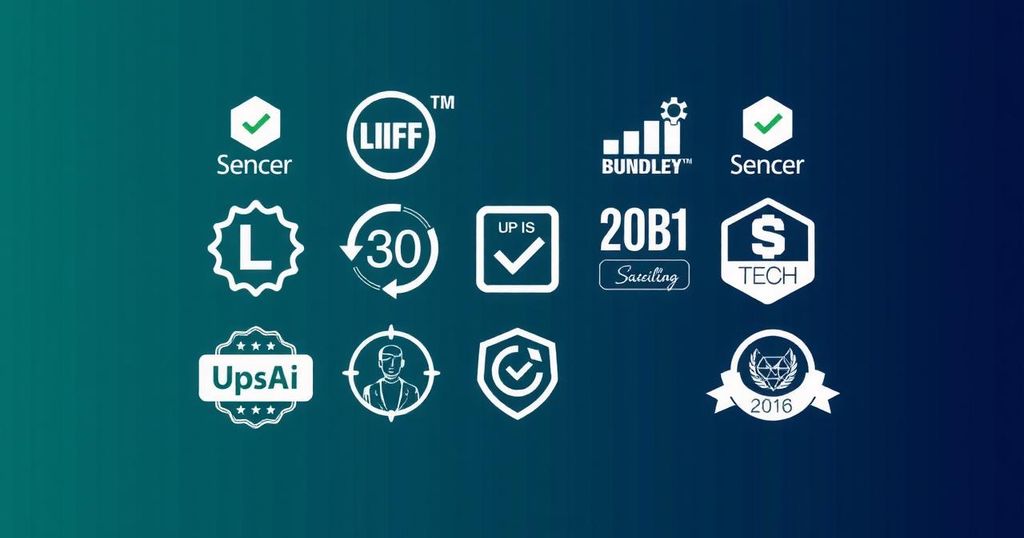Notable advancements in the biometric identity verification industry are marked by Incode, Tech5, Idnow, and Suprema achieving significant certifications and compliance updates. Incode has earned SOC 2 Type 2 certification, Tech5 has aligned with OSIA standards, Idnow has received Substantial LoA certification for its YRIS wallet, and Suprema complies with the NIS 2 Directive for data protection. These steps reflect a collective commitment to enhancing digital identity security and regulatory adherence.
The global sector of identity verification is experiencing significant enhancements as key biometric technology providers such as Incode Technologies, Tech5, Idnow, and Suprema announce their recent accomplishments in certification and compliance standards. These developments underscore the increasing emphasis on secure and compliant biometric identity systems, all aimed at fortifying the integrity of the digital identity environment. Incode Technologies has successfully completed its SOC 2 Type 2 audit, a rigorous evaluation designed to assess compliance with stringent data security and privacy standards. This certification, which originated from an independent audit, confirms that Incode meets the operational requirements set forth by the American Institute of Certified Public Accountants (AICPA). The audit scrutinized Incode’s information security practices, resulting in a perfect report devoid of exceptions, thus validating that the company’s systems effectively safeguard sensitive information. As Ricardo Amper, CEO of Incode Technologies, remarked, the certification embodies the company’s pledge to uphold customer trust through comprehensive security measures. IT compliance head David Kivilevic further noted that the clean audit report assures clients of the utmost care in data management, enhancing compliance with industry standards. Tech5, a Swiss-based biometric firm, has ensured that its biometric matching platform aligns with the Open Standards Identity API (OSIA), a telecom standard advocating interoperability among digital identity systems. This compliance, developed by the Secure Identity Alliance (SIA), facilitates smoother communication and data exchange between various sectors using biometric authentication. By meeting OSIA standards, Tech5 is enhancing digital identity management for mobile network operators, aiming to mitigate instances of fraud. Idnow has achieved the Substantial Level of Assurance (LoA) certification for its YRIS digital identity wallet, under the eIDAS regulation that regulates electronic identification, authentication, and trust services. This certification from the French Cybersecurity Agency (ANSSI) positions Idnow as a trustworthy partner for organizations needing to comply with the rigorous requirements set forth by the European Union. Marc Norlain, managing director at Idnow, indicated that the certification marks a significant milestone in the company’s dedication to supporting Europe’s initiative in establishing a secure digital identity framework for its citizens. In a similar vein, Suprema has demonstrated its compliance with the Network and Information Systems Directive 2 (NIS 2), an EU regulation that delineates cybersecurity protocols applicable to various sectors including energy, transportation, banking, finance, and more. Suprema has ensured that its access control systems adhere to the strictures of the NIS 2 directive and maintains compliance with GDPR regulations throughout its product development and operational processes.
The article focuses on the advancements in biometric technology compliance and certification among leading firms in the identity verification industry. In recent years, there has been an increasing emphasis on security and standards compliance to protect digital identities, driven by the rise in cyber threats and the need for regulatory compliance. Organizations like Incode, Tech5, Idnow, and Suprema have responded to these demands by obtaining certifications and aligning their services with established standards. These efforts not only boost customer trust but also enhance the overall integrity of digital identity infrastructure. Key certifications mentioned, such as SOC 2 Type 2 and NIS 2, are recognized benchmarks that validate an organization’s operational and security protocols. The OSIA standard also plays a critical role in ensuring that biometric systems can effectively communicate and exchange data across different platforms, creating a more cohesive and secure environment for identity verification.
The advancements detailed in the news underscore a crucial shift in the biometric technology landscape towards enhanced certification and compliance. Incode Technologies, Tech5, Idnow, and Suprema illustrate the industry’s evolution as they prioritize security and interoperability through robust standards. With certifications like SOC 2 Type 2 and compliance with the NIS 2 Directive, these firms not only enhance client trust but also contribute to the broader goal of secure digital identity management across various sectors. As identity verification continues to evolve, such certifications will be pivotal in navigating the intricate challenges of digital security.
Original Source: www.biometricupdate.com





